If you live in Europe, you probably know the difference between Danish and Dutch. But sometimes, people from further afield can get a little muddled.
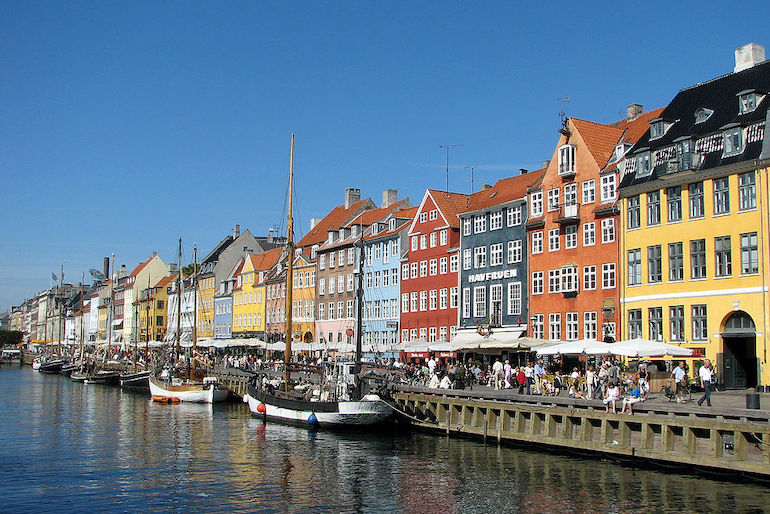
And it’s easy to understand why – after all, why should anyone from the other side of the planet need to know the difference between these two small European languages?
It’s also true that, to the untrained ear, Danish and Dutch do actually sound fairly similar!
Another thing is this: when you dig deep into the subject, you’ll find that there are quite a few similarities between the two languages and the two countries’ cultures.
Here’s a quick guide to the differences between Dutch and Danish, which should stop you from ever getting confused again. We’ll look at the two languages and answer knotty questions like “Are people from Denmark actually Dutch?”
What is the difference between the Dutch and the Danes?
The main difference between the Danes and the Dutch is this: Danes come from Denmark and the Dutch come from The Netherlands.
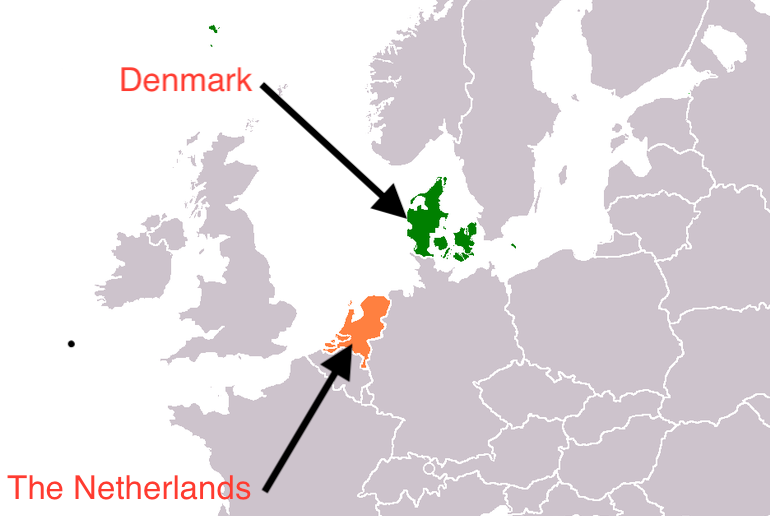
Denmark is a small, flat country to the north of Germany, and is actually part of Scandinavia.
Meawhile, the Netherlands is a similarly small, flat country that lies to the west of Germany.
And although Denmark and The Netherlands are geographically quite close to each other, they are very definitely separate countries with their own rules and their own histories and traditions.
So if you are Danish, where are you from?
Danish is the adjective for people and things that come from Denmark – and yes, that includes the pastries!
So the Danes are Danish people, who come from Denmark and speak Danish.
And the Dutch are Dutch people who come from the Netherlands. Clear? Good!
Are you Dutch if you’re from Denmark?
The simple answer to this is… no!
You’re a Dane if you’re from Denmark – and you speak Danish.
You’re Dutch if you come from The Netherlands, which is also sometimes (wrongly) called Holland.

In fact, Holland is just the western region of The Netherlands, encompassing the districts of Noord-Holland and Zuid-Holland. Its name comes from the old Dutch word holtland, which means woodland.
Although Holland is a relatively small part of The Netherlands, it covers most of the country’s major cities, including Amsterdam, Rotterdam and The Hague, and is where most of the country’s population lives.
For this reason, the term Holland is sometimes used for the whole of The Netherlands, but this is incorrect – and you won’t win any friends amongst the Dutch people if you make the same mistake!
Why are the Dutch called Dutch?
At first view, this seems like a completely illogical name for a nationality. It’s hard to see the link between the country, which is The Netherlands and the people who are Dutch.
However, the word “Dutch” is actually a corruption of the German word deutsch, which simply means “people”.
Confusingly, the German name for Germany is Deutschland, which means “the land of the people”!
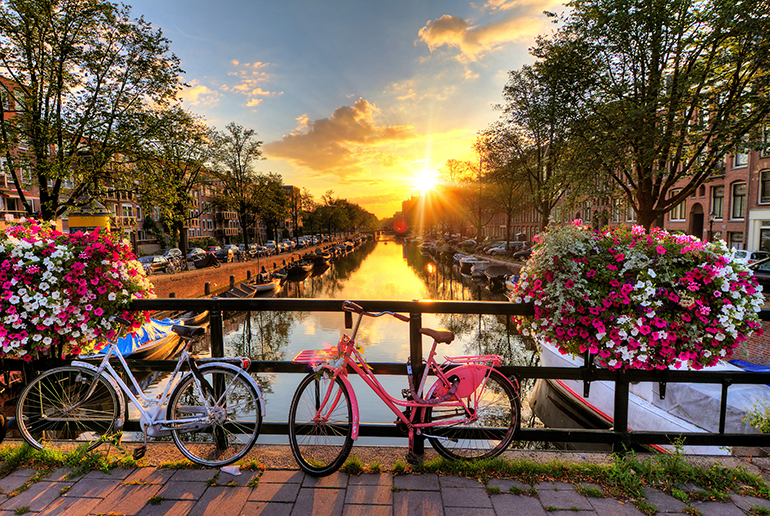
Is Denmark the same as The Netherlands?
Erm… no. Denmark and the Netherlands are separate countries with their own governments, currencies, flags and languages.
The capital of Denmark is Copenhagen and the capital of The Netherlands is Amsterdam – though, confusingly, The Hague is the administrative capital and home to the country’s courts and government.
However, there are similarities between the two countries. The name The Netherlands means “low-lying country”, which could equally refer to Denmark.
Both Denmark and The Netherlands are flat lowlands on the North Sea, and are geographically fairly similar.
And in both places, the flat landscape and a love for the environment has made cycling one of the most popular ways to get around.
Is Dutch closer to Danish or German?
Just as Germany links Denmark and The Netherlands geographically, it is also the link between the Danish and Dutch languages.
Both languages are of Germanic origin, with Danish being a North Germanic language and Dutch being a West Germanic language.
How close are Danish and Dutch?
Although they both derive from Germanic languages, Danish and Dutch are two very distinct languages.
Being a North Germanic language, Danish has much more in common with the other Scandinavian languages, such as Swedish, Norwegian and Icelandic.
Dutch, meanwhile, is closer to German, Flemish, Gaelic and English.
Which language sounds closest to English?
Dutch, Danish and English all share Germanic origins, although the influence of Latin on English is much greater than on the other two languages.
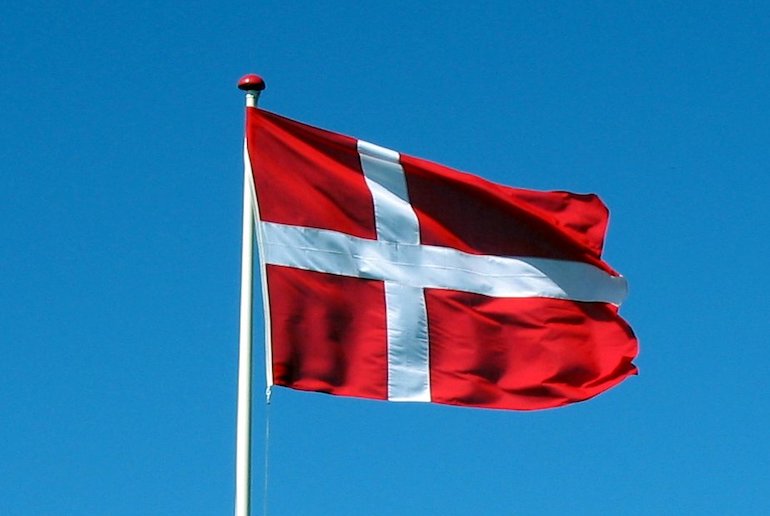
Dutch shares more vocabulary with English and its roots are closer than Danish is, though there are some distinct characteristics that Danish shares with English.
Grammatically, Dutch puts the main verb at the end of the sentence as German does, while Danish and English both follow the Latinate word order and have the main verb near the beginning of the sentence.
Are Dutch and Danish the same language?
So, is Danish Dutch and vice versa? The answer is most definitely no.
Although they share the same roots and some similarities, they are two very distinct languages, with their own grammar rules, vocabulary and idioms.
Are Dutch and Danish mutually intelligible?
So even though the languages are different, can the Dutch understand Danish?
Are they close enough that people from the two countries can speak, read and understand each other languages?

The simple answer is no, the Dutch and Danes are highly unlikely to be able to understand each other’s languages.
They may recognise the odd word of vocabulary, but in fact Danes are more likely to be able to speak and understand Swedish than Dutch.
And the Dutch are more likely to understand German than Danish.
And, since both Danes and the Dutch learn English at school and tend to speak very good English, it’s far more likely that a Dutch person and a Dane will converse together in English than in each other’s languages.
Which is easier to learn: Danish or Dutch?
In terms of vocabulary and spelling, Dutch is probably easier for native English speakers since they share many words with a similar pronunciation.
The Dutch language borrows lots of words from the French, as does English – although, annoying, they are rarely the same words!
Like English, the Danish spelling is renowned for being inconsistent though, of course, this makes harder for non-native speakers to learn!
Interestingly, Dutch regular appears in lists of the easiest languages for English speakers to learn (alongside Norwegian and Swedish) but Danish is considered much harder.
Danish vs Dutch culture
Just as Denmark and The Netherlands share geographic similarities, so do they culturally.
Both are peaceful, tolerant, open-minded societies, with a similar standard of living and based on principles of equality and human rights for all.
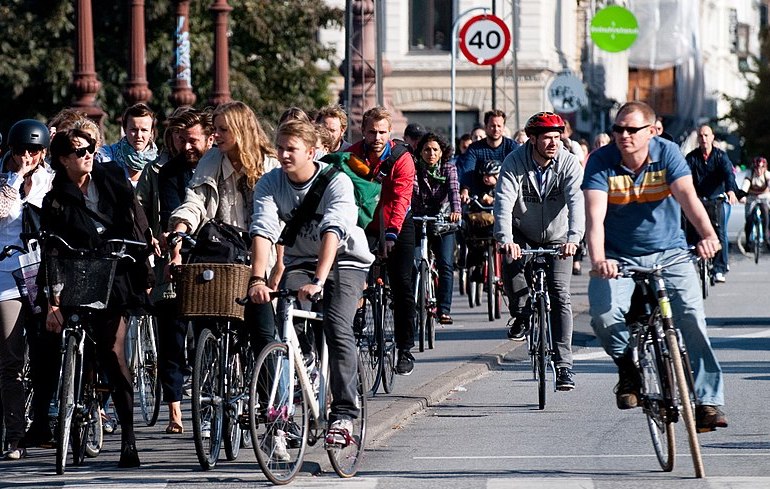
Possibly because of their lack of mountains, they are two of the most bike-friendly countries in the world, with cycling and cycle lanes commonplace.
In terms of the environment, they both have good green credentials, though they diverge hugely in their use of renewable energy.
In 2021, 67 percent of Denmark’s energy came from sustainable sources – in particular wind power – putting it in the top ten countries in the world for sustainable energy.
The Netherlands, meanwhile, got just 12 percent of its energy from renewable sources – a surprisingly low figure for a country known for its windmills!
As one of Europe’s most densely populated countries, The Netherlands is more urban than Denmark and has fewer natural spaces.
However, both countries share a mutual love of canals, bikes, beer and football!
See also:
Is Denmark a Socialist country?
Is Denmark in Europe?
What is Denmark famous for?






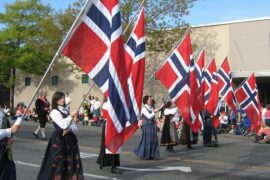

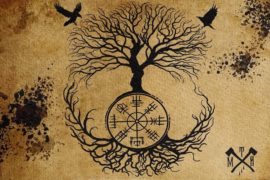

May I add some facts to the original article: 1) What binds people from Netherlands, Denmark and the German connecting coast line ethnically, culturally and linguistic, is the common predecessing Frisii people who shared language and culture from the year 0 until about 750. They are genetically more related to English than to German people. Both Dutch and Danish language are highly influenced by Frisii. 2) The last today’s still spoken Frisian language as well as the Dutch have more similarity with Norwegian than with Danish. 3) Linguistically, the today’s Dutch vocabulary is 50% similar to the German and 50%… Read more »
You say “Dutch, meanwhile, is closer to German, Flemish, Gaelic and English.” Gaelic????? Gaelic is a Celtic language that belongs to a completely different language family of Celtic languages like Welsh, Breton and Cornish. Celtic and Germanic languages are totally unrelated and completely unintelligible. You may as well say Dutch is closer to Greek! Yes, all of them are broadly part of the wider Indo-European languages but a Dutch speaker would have as much chance of understanding Iranian or Gujarati as Gaelic or Welsh.
You say Dutch is difficult for native English speakers, but I disagree. The only hard part is the pronunciation of ‘ij’ and ‘ui’ which are seemingly unique Dutch sounds. There are fewer words, and the grammar is simple – having the main verb at the end of sentences in a two-verb sentence isn’t too difficult to grasp, and this rule can be broken in speech and you can still be understood. The biggest hurdle is that every Dutch person wants to reply in English when you are learning, so you don’t get enough opportunities to practice and many folks give… Read more »
I am Dutch and would like to add some points. First of all, while English is technically West Germanic like Dutch is Danish is by far more similar to Dutch than English is. About mutual intelligability: spoken it is difficult for both to understand eachother. Written this changes substantially. I have been to Denmark on a couple occasions and Danish is written pretty similar to Dutch. I know both Danes and Dutch who can read eachothers languages me and my wife included (and the same is true for Norwegian and Swedish). So the pronounciations is the main difference and of… Read more »
Totally agree with that! As a dutchman Written i am able for both danish and swedish to find out where the sentence is about. In a lo ways i feel like culturally dutch people are closer to the scandinavian countries than we are to our neighbors germany, england and (lets ignore belgium) france